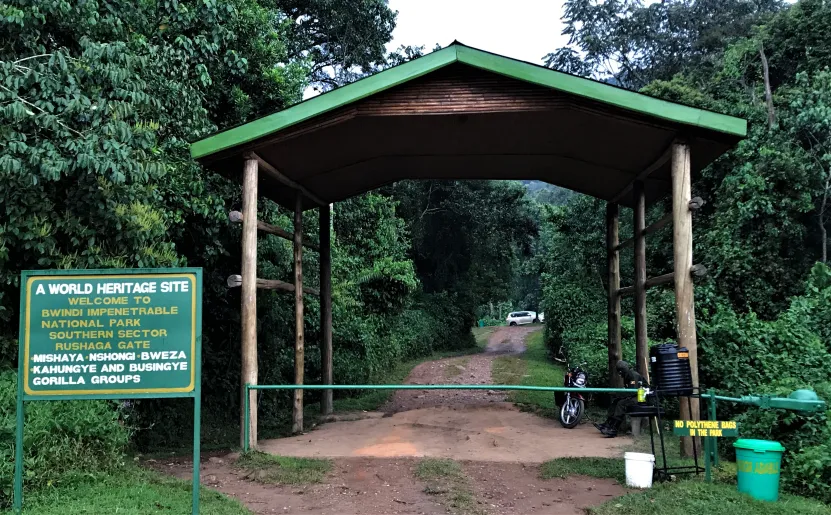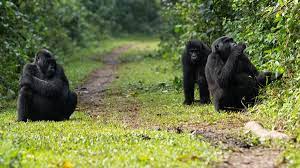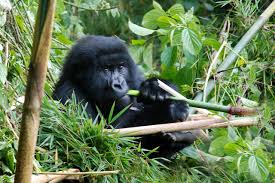Pearl Africa tours takes you on a remarkable journey through Bwindi National Park in Uganda, where the endangered mountain gorillas reside. In this comprehensive guide, we delve into the different sectors of the park, focusing on the fascinating concept of gorilla habituation. Discover the distinctions between gorilla habituation and trekking, explore where to experience this unique adventure in Uganda, learn about permit availability and costs, understand the duration and benefits of gorilla habituation, and find out who qualifies for this captivating experience. Additionally, we provide essential packing tips and delve into the conservation efforts and eco-tourism initiatives associated with gorilla habituation in Bwindi National Park.
What are the different sectors of Bwindi National Park, and how do they contribute to the gorilla habituation experience?

Bwindi National Park, located in Uganda, is a renowned protected area known for its diverse wildlife, stunning landscapes, and most notably, its population of endangered mountain gorillas. The park is divided into several sectors, each offering unique experiences and opportunities for visitors. These sectors include Buhoma, Ruhija, Rushaga, and Nkuringo, each with its own gorilla families available for tracking and habituation.
How does gorilla habituation differ from gorilla trekking?

Gorilla habituation is a process that involves gradually acclimating wild gorillas to the presence of humans. It is different from gorilla trekking, which involves tracking and observing habituated gorilla families that are already accustomed to human presence. During gorilla habituation, researchers and park rangers accompany small groups of visitors to spend an extended period with a gorilla family that is in the process of habituation. This immersive experience allows participants to witness and contribute to the habituation process itself.
Where can one go for gorilla habituation in Uganda, and how much does it cost?
For gorilla habituation, visitors can go to the Rushaga sector of Bwindi National Park. This sector is well-known for its habituation experiences, offering a limited number of permits for this unique activity. As of the last update, the cost of a gorilla habituation permit is approximately $1,500 per person. However, it is essential to check with the appropriate authorities or tour operators like Pearl Africa tours for the most up-to-date pricing information.
How many permits are available for gorilla habituation, and what is the duration of the habituation process?

The number of permits available for gorilla habituation is limited to ensure the conservation and well-being of the gorillas. In Rushaga, there are usually a limited number of habituation permits issued each day, generally allowing up to four visitors to participate in the habituation process with a specific gorilla family. This exclusivity ensures an intimate and less crowded experience for participants.
The duration of gorilla habituation varies, but typically it involves spending approximately four hours with the gorilla family. This extended encounter provides an exceptional opportunity to observe their behavior, social interactions, and daily activities. It is important to note that the habituation process may take several years before a gorilla family becomes fully habituated.
What are the benefits of gorilla habituation, and what are the requirements for participating?
The benefits of gorilla habituation are twofold. Firstly, it contributes to the conservation of mountain gorillas by habituating additional gorilla families, thereby increasing their tolerance towards human presence. This process enhances their protection and allows for ongoing research and monitoring. Secondly, gorilla habituation offers a unique and immersive experience for visitors, providing a deeper understanding of these incredible creatures and fostering a connection that can inspire conservation efforts.
Who qualifies for gorilla habituation, and could you provide a packing list for this activity?
To participate in gorilla habituation, certain requirements must be met. Visitors should be at least 15 years old and in good physical condition to undertake the hike and spend an extended period in the forest. It is also important to have a valid gorilla habituation permit, which must be obtained in advance through authorized tour operators or the Uganda Wildlife Authority. It is advisable to book permits well in advance, as they can be in high demand.
What can I pack for gorilla habituation?

When packing for gorilla habituation, it is crucial to consider the following items: comfortable and sturdy walking shoes, long trousers, long-sleeved shirts or t-shirts, a waterproof jacket, a hat, sunscreen, insect repellent, a daypack, a reusable water bottle, snacks, and a camera with extra batteries and memory cards. It is essential to pack light but adequately prepare for the varying weather conditions and terrain of the forest.
How does gorilla habituation contribute to conservation efforts and ecotourism in Bwindi National Park?
Gorilla habituation aligns with the broader conservation efforts and ecotourism initiatives in Bwindi National Park. The park, along with various conservation organizations, works tirelessly to protect the habitat of mountain gorillas and promote sustainable tourism practices. Revenue generated from gorilla habituation permits and other tourism activities contributes directly to conservation programs, anti-poaching efforts, community development, and education initiatives aimed at preserving this unique ecosystem and its wildlife.
In conclusion, gorilla habituation in Bwindi National Park offers a truly immersive and transformative experience for nature enthusiasts and conservationists alike. By exploring the different sectors of the park and participating in the habituation process, visitors gain a deeper understanding of these majestic creatures and actively contribute to their conservation. The distinctiveness of gorilla habituation, its limited availability, and the costs involved make it a sought-after adventure for those seeking an intimate encounter with gorilla families in their natural habitat. With its emphasis on sustainable tourism and conservation efforts, gorilla habituation in Bwindi National Park stands as a remarkable example of how ecotourism can promote the preservation of endangered species and their ecosystems.
